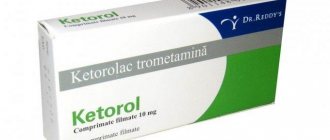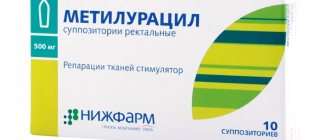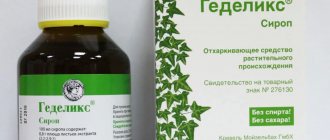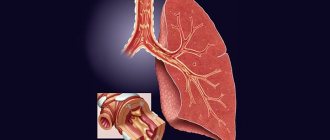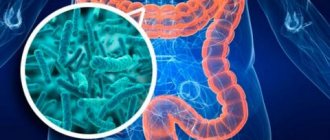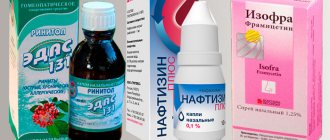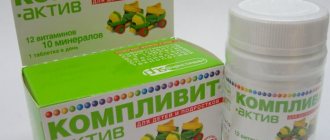Directions for use and dosage
Nicotinamide tablets should be taken orally after meals.
For therapeutic purposes, doses of the drug are set individually depending on the severity of vitamin deficiency PP, for preventive purposes - in accordance with the daily requirement.
Recommended doses for pellagra:
- Treatment: adults – 50-100 mg 3-4 times a day, children – 10-50 mg 2-3 times a day. Course – 15-20 days;
- Prevention: adults – 15-25 mg, children – 5-10 mg 1-2 times a day.
For other indications, a dose ranging from 20 to 50 mg is recommended for adults, and 5-10 mg for children, taken 2-3 times a day.
Nicotinamide solution is administered intramuscularly, intravenously or subcutaneously at a rate of no more than 2 mg/minute, 1-2 ml 1-2 times a day.
Release form and composition
The following dosage forms of Nicotinamide are produced:
- Tablets (in blister packs of 10 pcs.; 1-3 packs in a cardboard pack; in plastic jars of 20, 30 or 50 pcs.);
- Solution (1% and 2.5% - in ampoules of 1 ml; 5% - in ampoules of 2 ml; 10 ampoules per package);
- Powder substance for hospitals and pharmacies (in polyethylene bags of 1, 5, 10, 15, 20, 25, 30 or 50 kg, 1 bag in a fiber drum; in plastic bags of 5, 10, 15 or 20 kg).
The drug contains the active substance: nicotinamide.
Side effects
With intravenous administration, in rare cases, allergic reactions are observed, manifested by skin rash, itching, and wheezing.
When taking Nicotinamide orally in high doses, the following are possible: dry skin and mucous membrane of the eyes, debilitating skin itching, dizziness, diarrhea, hyperglycemia, glucosuria, hyperuricemia, thirst, myalgia, nausea, vomiting, peptic ulcer, arrhythmia.
Long-term treatment can lead to the development of fatty liver and cholestasis.
Contraindications
Absolute:
- Angina pectoris (severe form);
- Arterial hypertension (severe form);
- Hypersensitivity.
Relative contraindications (must be used with extreme caution, as there is a possibility of complications):
- Hyperacid gastritis;
- Liver diseases;
- Hyperuricemia;
- Glaucoma;
- Gout;
- Diabetes;
- Hemorrhage;
- Arterial hypotension.
special instructions
By drinking the tablets with milk, you can reduce the irritating effect of Nicotinamide on the mucous membrane of the digestive tract.
Nicotinamide should not be used as a lipid-lowering agent.
Liver function should be monitored during therapy. To prevent the development of fatty degeneration, it is recommended to eat a diet that includes methionine-rich foods, or take methionine and/or other lipotropic drugs.
To prevent hypovitaminosis PP, a balanced diet is considered more preferable than the use of medications.
Indications for use
The use of Nicotinamide is recommended for hypo- and avitaminosis B3 (PP), or in cases of increased need for vitamin B3 (PP), due to the following diseases/conditions:
- Pellagra;
- Poor and unbalanced nutrition;
- Malabsorption;
- Rapid weight loss;
- Diabetes;
- Prolonged fever;
- Gastrectomy;
- Diseases of the hepatobiliary region (hepatitis, cirrhosis);
- Hyperthyroidism;
- Chronic infections;
- Gastrointestinal diseases;
- Malignant tumors;
- Diseases of the oropharyngeal region;
- Prolonged stress conditions;
- Pregnancy, breastfeeding period.
Nicotinamide is also used as part of complex therapy for acute alcohol conditions and addiction.
What is the difference?
Nicotinamide is an amide of nicotinic acid, which is formed by replacing the hydroxyl group with an amino group in the structural formula. The compound belongs to group B nutrients and has serial number 3 in the table of vitamins. Another abbreviation for the substance, PP, comes from the word “pellagra,” which refers to a severe degree of vitamin deficiency. In the medical literature you can find the name niacinamide, which comes from the second name of the formula (niacin).
Now Foods, Niacinamide, 500 mg, 100 Capsules
495 ₽
Buy at a discount
In its chemical properties, the substance is similar to nicotinic acid; both of these molecules can be used in medicine for the treatment and prevention of many diseases. But niacin and niacinamide are not the same thing. For the treatment of hypovitaminosis, it is better to use amide, since when administered it does not cause unpleasant side effects on the skin. Nicotinamide, unlike acid, enters redox reactions faster.
Use of nicotinamide
The wide range of pharmacological effects of the vitamin is due to its participation in all metabolic reactions in the form of the coenzyme dehydrogenase. Acid is needed for the processes of protein and amino acid synthesis, tissue respiration, and glycolysis. The substance is beneficial for reducing the level of harmful lipids in the blood, improves microcirculation, and normalizes the coagulation properties of plasma.
For skin problems
Niacin is a powerful antioxidant; it protects the skin from exposure to ultraviolet radiation and harmful chemical factors. The product effectively eliminates peeling and smoothes wrinkles. Niacin is needed to even out the complexion, get rid of age spots and post-acne.
For hair beauty
Nicotinamide is found in many shampoos and conditioners; it helps restore beauty and shine to hair, improves blood supply and trophism of hair follicles. Acid promotes rapid restoration of hair structure after exposure to damaging factors - constant styling with a curling iron, chemical perms.
Read more about the effects of nicotinic acid on hair here.
Against melanoma
According to the results of a study by Israeli scientists, vitamin nicotinamide can reduce the risk of malignant transformation of epidermal and dermal cells. The rate of skin cancer progression in patients taking niacin for a long time decreased by 23%. The vitamin acts as a natural antioxidant, destroying free radicals and mutant cells in the body.
For kidney diseases
Nicotinamide is not effective enough in acute forms of diseases of the urinary system, but it can be used in chronic renal failure. The compound normalizes the rheological characteristics of the blood, improves blood flow in the kidneys, stimulates the formation and filtration of urine.
Nature's Way, Nicotinamide, 500 mg, 100 Capsules
406 ₽
Buy at a discount
For diabetes
Diabetes mellitus in most cases is accompanied by abnormalities in the blood lipid profile and metabolic syndrome. Niacin is a third-line treatment for diabetes due to its ability to reduce plasma atherogenic lipid levels. Nicotinamide should be prescribed only under strict monitoring of blood glucose levels. The indication for use of the supplement is a compensated form of diabetes.
Similar drugs:
- Nicotinic acid Oral tablets
- Nicotinamide Substance-powder
- Nicotinic acid-Vial Solution for injection
- Nicotinic acid bufus Solution for injection
- Nicotinic acid (Niacin) Substance-powder
- Nicotinic acid Solution for injection
- Nicotinic acid Substance-powder
** The Drug Directory is intended for informational purposes only. For more complete information, please refer to the manufacturer's instructions. Do not self-medicate; Before starting to use the drug Nicotinamide, you should consult a doctor. EUROLAB is not responsible for the consequences caused by the use of information posted on the portal. Any information on the site does not replace medical advice and cannot serve as a guarantee of the positive effect of the drug.
Are you interested in the drug Nicotinamide? Do you want to know more detailed information or do you need a doctor's examination? Or do you need an inspection? You can make an appointment with a doctor - the Euro lab is always at your service! The best doctors will examine you, advise you, provide the necessary assistance and make a diagnosis. You can also call a doctor at home . Euro lab clinic is open for you around the clock.
** Attention! The information presented in this medication guide is intended for medical professionals and should not be used as a basis for self-medication. The description of the drug Nicotinamide is provided for informational purposes and is not intended for prescribing treatment without the participation of a doctor. Patients need to consult a specialist!
If you are interested in any other drugs and medications, their descriptions and instructions for use, information about the composition and form of release, indications for use and side effects, methods of use, prices and reviews of drugs, or you have any other questions and suggestions - write to us, we will definitely try to help you.
Pharmacodynamics and pharmacokinetics
Nicotinamide - what is it?
Vitamin remedy Nicotinamide has a structure close to nicotinic acid . Its synonyms also include vitamin PP .
This substance is an important component necessary for the full course of redox processes occurring in the cell. The vitamin also takes part in the metabolism of fats, amino acids, purines, proteins, tissue respiration and glycogenolysis . At the same time, there is no pronounced vasodilating effect, redness and irritation on the skin, or “flushes” of blood. In addition, the drug has an antipellagritic effect. Nicotinamide is characterized by rapid absorption and metabolism.
Analogs
Level 4 ATC code matches:
Medobiotin
Calcium Pantothenate
Volvit
Alpha Tocopherol Acetate
Riboflavin
Pyridoxine Hydrochloride
Pyridoxine
Vitrum Vitamin E
Analogs are represented by the following drugs: Aminicotin, Benikot, Endobion, Niacevit, Bepella, Niacinamide, Nicofort, Nicotol, Nicotinic acid, Nikamide and Pelmin.
Also have a similar effect: Neurovitan, Folic acid and Bepanten.
Reviews about Nicotinamide
In most cases, reviews of Nicotinamide are left by people who take it during pregnancy or to prevent vitamin deficiency . Pregnant women note that this drug is well tolerated and highly effective. It is also often reported that taking this vitamin improves the condition, appearance and quality of hair and nails.
Nicotinamide is often included in the diet of athletes, bodybuilders and athletes. At the same time, it is described as an excellent anabolic steroid that helps quickly and effectively build muscle mass.
Thus, there are only positive opinions about this vitamin product. However, experts remind that taking the drug without indications and without consulting a doctor is not recommended.
Nicotinamide powder substance
Instructions for medical use of the drug
Description of pharmacological action
Substrate stimulates the synthesis of nicotine adenine dinucleotide (NAD) and nicotine adenine dinucleotide phosphate (NADP). In the form of NAD and NADP, it accepts and transfers protons in numerous redox reactions, ensuring the normal course of many types of metabolism, incl. energy.
Indications for use
Pellagra (vitaminosis PP), diabetes mellitus, liver disease, heart disease, gastric and duodenal ulcers, enterocolitis, slow-healing wounds and ulcers.
Release form
powder substance; two-layer polyethylene bag (bag) 25.50 kg, fiber drum 1; powder substance; plastic bag (pouch) 50 kg, cardboard drum 1; powder substance; plastic bag (bag) of 5,10,15,20 kg; powder substance; polyethylene bag (bag) of 1,5,10,15,20,25,30 and 50 kg, drum 1;
Pharmacodynamics
Vitamin remedy (vitamin B3, vitamin PP). Its structure is similar to nicotinic acid. It is an important component of codehydrogenase I (NAD) and II (NADP), involved in redox processes in the cell. Participates in the metabolism of fats, proteins, amino acids, purines, tissue respiration, glycogenolysis. It does not have a pronounced vasodilating effect; when it is used, there is no redness of the skin or a feeling of a “rush” of blood to the head. Has an antipellagric effect.
Pharmacokinetics
Quickly distributed into all tissues. Penetrates through the placental barrier and into breast milk. Metabolized in the liver to form nicotinamide-N-methylnicotinamide. Excreted by the kidneys.
Contraindications for use
Hypersensitivity, severe forms of arterial hypertension, angina pectoris.
Side effects
After intravenous administration: rarely - allergic reactions (skin rash, itching, wheezing). When taking high doses orally: arrhythmia, dizziness, diarrhea, dry skin and mucous membrane of the eyes, hyperglycemia, glucosuria, thirst, hyperuricemia, myalgia, nausea, vomiting, peptic ulcer, debilitating itching. With long-term use - fatty liver, cholestasis.
Directions for use and doses
Inside, subcutaneously, intramuscularly, intravenously. Therapeutic doses are prescribed individually according to the severity of vitamin deficiency RR, preventive doses are prescribed according to the daily requirement. Inside, after eating. For pellagra - 50-100 mg 3-4 times a day, for 15-20 days, for prevention for adults - 15-25 mg, children - 5-10 mg 1-2 times a day. For other diseases, adults - 20-50 mg, children - 5-10 mg 2-3 times a day. IV, IM and SC - 1-2 ml of 1%, 2.5%, 5% solution 1-2 times a day with an administration rate of no more than 2 mg/min.
Special instructions for use
To prevent hypovitaminosis RR, a balanced diet is most preferable. Foods rich in vitamin PP - yeast, liver, nuts, egg yolk, milk, fish, chicken, meat, legumes, buckwheat, unrefined grains, green vegetables, ground nuts, any protein food containing tryptophan. Heat treatment of milk does not change the content of vitamin PP in it. During treatment it is necessary to monitor liver function. To prevent the development of fatty liver disease, it is recommended to include foods rich in methionine in the diet, or prescribe methionine and other lipotropic drugs. Nicotinamide is not used as a lipid-lowering agent. To reduce the irritating effect on the gastrointestinal mucosa, it is recommended to take the drug with milk.
Storage conditions
List B: In a dry place, protected from light, at a temperature not exceeding 25 °C.
Best before date
60 months
ATX classification:
A Digestive tract and metabolism
A11 Vitamins
A11H Other vitamins
A11HA Other vitamins
A11HA01 Nicotinamide (vitamin B3)
Vitamin PP (nicotinic acid, niacin; nicotinamide (nicotinamidum)
Niacin is the only vitamin that traditional medicine considers a cure. It may actually be the most effective cholesterol-lowering 'cure' that exists.Vitamin PP is a component of the B-complex and is critical for energy production and well-being on many levels, especially for heart health and optimal circulation. It is involved in more than fifty reactions during which sugar and fat are converted into energy. It is also essential for amino acid metabolism and is involved in the conversion of fats into substances called eicosanoids, hormone-like agents that control our body's metabolic pathways.
Niacin is a vitamin that has no equal in cholesterol control. In people who have already experienced a myocardial infarction, niacin increases the chances of survival to a greater extent than pharmaceutical drugs. That was the conclusion of a study called Project Coronary Medicine, which compared niacin with two anti-cholesterol drugs to see which best curbed non-fatal heart attack and prolonged life after a heart attack. Even several years after stopping treatment, the death rate was lower only among those taking niacin.
Niacin simultaneously combats four major risk factors for cardiovascular disease:
- High LDL cholesterol. This 'bad' form of cholesterol accumulates on the inside of artery walls, restricting blood flow and leading to hardening of the arteries (atherosclerosis). Niacin supplements cause a decrease in LDL cholesterol levels.
- Low HDL cholesterol. Low cholesterol is one of the surest predictors of cardiovascular disease, since HDL helps clear LDL from the circulatory system.
- Increased levels of lipoprotein (a). A sticky byproduct of LDL, lipoprotein(a), has emerged in the past few years as an independent risk factor for heart disease—as dangerous as high blood pressure, smoking, obesity and total cholesterol. It contributes to clogged arteries and increases the likelihood of blood clots. The higher its level, the greater the risk. No known drugs have any effect on high amounts of lipoprotein(a). However, niacin along with vitamin C reduces the risk associated with it.
High triglyceride content. Recently recognized as an independent risk factor of critical importance, these blood fats signal the presence of insulin disorder type II diabetes and hypertension. The best way to manage high triglycerides is to sharply reduce your intake of sugar and other carbohydrates, but niacin supplements can provide strong support by lowering triglyceride levels.
Who is niacinamide contraindicated for?
The administration of nutrients from the nicotinamide group is prohibited for the following diseases and conditions:
- individual intolerance to nicotinic acid or other active components of the drug;
- peptic ulcer of the stomach and duodenum in the acute stage;
- acute inflammatory liver diseases;
- acute and subacute stage of myocardial infarction;
- a sharp decrease in total peripheral vascular resistance.
Medicines should be used with caution in patients with glaucoma, arterial hypotension, and unstable angina. For pregnant and lactating women, the use of nicotinamide is strictly not recommended due to possible harm to the child. Nicotinic acid should not be prescribed to children under 12 years of age.
Vitamin in food
Nicotinamide is found in many foods: in plant foods in the form of nicotinic acid, in foods of animal origin in the form of amide. TOP 10 foods rich in vitamin B3 (table):
| Product name | Amount of PP, mg per 100 g of product |
| Peanut | 18,9 |
| Beef liver | 17,2 |
| Tuna | 15,5 |
| Turkey | 13,3 |
| Pistachios | 13,2 |
| Chicken fillet | 12,5 |
| Rabbit meat | 11,6 |
| Mackerel | 11,5 |
| Pine nuts | 8,3 |
| Squid | 7,6 |
Nicotinamide as a substance is quite stable: it does not deteriorate during long-term storage, freezing, or exposure to solutions with an acidic or alkaline environment. But the acid quickly loses its beneficial properties under the influence of high temperatures - when heated, its content decreases by 35-45%. Therefore, it is not always possible to obtain the daily requirement with food.
Details about natural sources of niacin amide (video):
